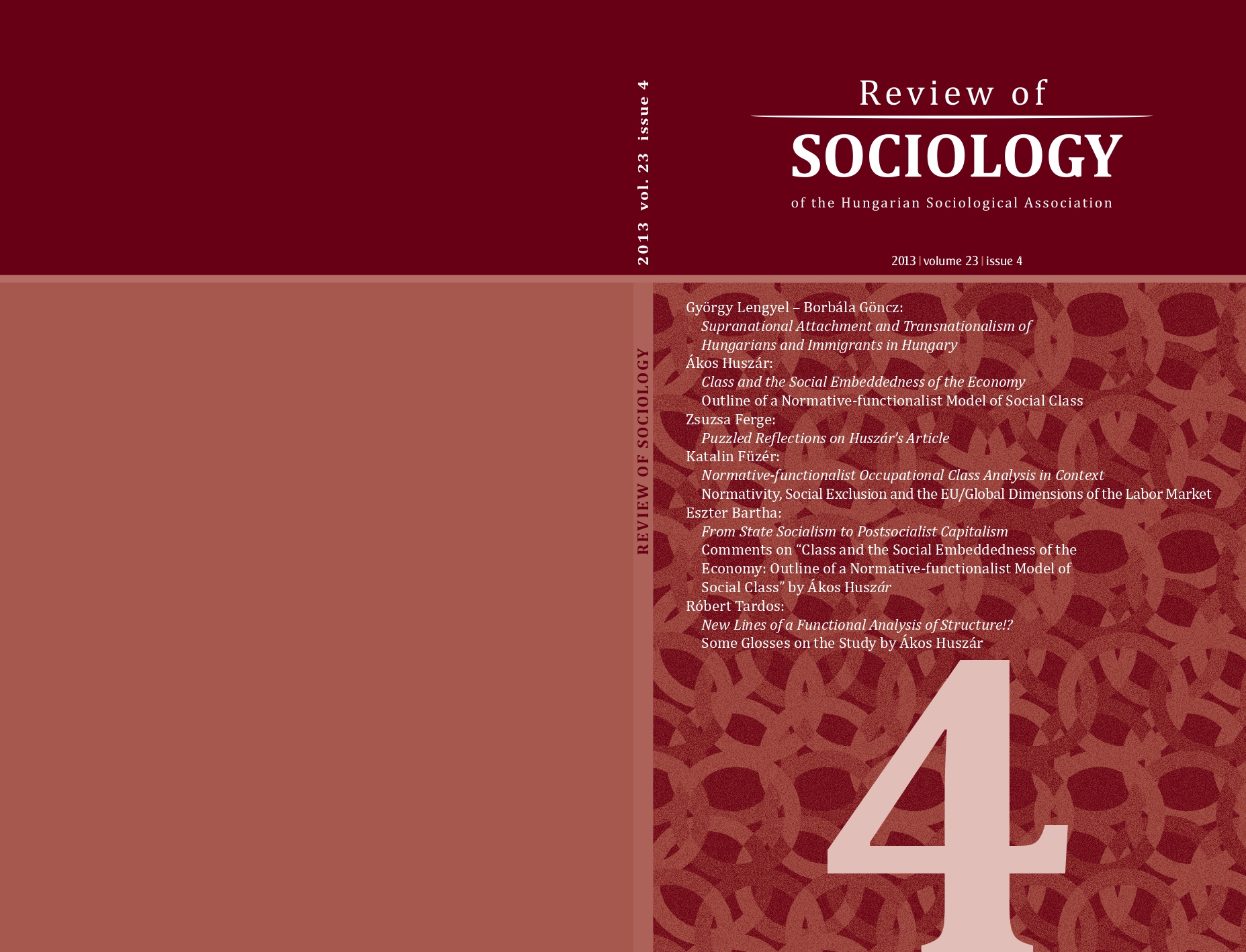Class and the Social Embeddedness of the Economy
Outline of a Normative-functionalist Model of Social Class
Absztrakt
The paper undertakes the task of elaborating the outline of a normative-functionalist model of social class. Traditional Marxist and Weberian theories of social class both assume that with the emergence of capitalism the social embeddedness of economy dissolves and thereafter it is the capitalist economy that shapes society upon its own image. Hence, these theories imply the necessity of a description and understanding of social structure on the basis of relations of exploitation or of different market chances offered by the capitalist economy. In opposition to these theories, this paper attempts to grasp the structure of modern societies as if the capitalist economy were still embedded in society. The paper is based on the Parsonian thought that all societies institutionalise some balance between equality and inequality and that social stratification contributes to the normative integration of society. According to this view, the institutionalised norms and value standards of equality and inequality prescribe in what respects the members of society should be treated as equal and inequal. If economy is conceptualised as if it were embedded in society, i.e. as if its functioning were subject to the institutionalised norms of equality and inequality, an alternative viewpoint should be chosen to describe the class structure of society. In the course of classification it should be asked which norms of equality and inequality are institutionalised in modern societies and what kind of social groups could be differentiated in accordance. The paper tries to draw up a comprehensive class schema on the basis of this starting point. The theoretical framework applied in the paper places special questions in the centre of class analysis. By analysing the institutionalised norms of equality and inequality and their enforcement in society empirical investigations should find out whether social stratification could fulfil its integrative function or, contrarily, it leads to different social-political conflicts among different groups of society.





